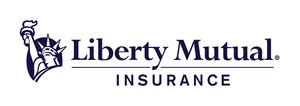BOSTON, May 17, 2018 /PRNewswire/ -- To help hospitals – and the brokers who support them – better protect patients, staff and the broader community, Liberty Mutual has posted the Emergency Preparedness in Healthcare: Learning from the Past to Improve the Future whitepaper.
The free online report includes tips for taking a more holistic approach to hospital disaster planning and recovery. It also reviews three critical, but largely unaddressed, areas of concern in hospital emergency preparedness: credentialing difficulties, Medicare/Medicaid requirements, and emerging infrastructure issues. Finally, the whitepaper provides two case studies highlighting disaster planning lessons learned by actual hospitals during recent catastrophes.
"Hospitals' experience with last year's severe weather shows the industry must think beyond standard emergency plans if they are to sustain a community during a tragic event," notes Jeff Duncan, chief underwriting officer, National Insurance Specialty - Healthcare, Liberty Mutual, which provides a full range of primary risk management solutions to hospitals and healthcare companies.
Nicole Hayes, vice president of Hospital Professional Liability at Ironshore's IronHealth operation agrees with the value the new whitepaper provides healthcare risk managers and brokers. "Understanding how to holistically prepare for disasters – and mastering the three areas of concern highlighted by last year's severe weather – will help hospitals better respond to future catastrophic events."
The key disaster preparedness best practices highlighted in the whitepaper include:
- Continuously developing, testing and refining a proactive disaster preparedness and recovery plan
- Proactively developing mutual aid agreements with other area facilities and vendors to expedite credentialing medical professionals, supplies, equipment, et cetera when they are most needed
- Understanding how potential disasters might affect the hospital's structure, key equipment, supplies, inpatients services, and outpatients receiving critical care
- Determining how long the facility can operate self-sufficiently during a local catastrophe
The whitepaper also reviews the three areas of disaster preparedness highlighted by recent severe weather:
- Credentialing – Local emergencies often cause a surge of patients for area hospitals. This creates a need for additional qualified medical staff from outside the impacted area. While credentialing can take weeks or months, it is necessary to help protect a hospital from potential liability issues. An effective credentialing process must be in place well before any storm clouds gather.
- Medicare/Medicaid Requirements – As of November 2017, hospitals must fully comply with the Centers for Medicare and Medicaid Services' emergency preparedness requirements. These help ensure coordination and communication between treatment centers serving Medicare and/or Medicaid patients impacted by local emergencies. Failure to comply with these regulation can result in patient hardship, reputational damage and civil penalties.
- Emergency Infrastructure Challenges – From electricity to sewer, a hospital's key infrastructure will largely determine its success in responding to local emergencies. Losing one of these can close the entire facility at a time when it is needed most. Recent severe storms show the importance of making sure generators are located in areas where they will not flood, and that they are large enough to produce enough power to meet expanded demand in a time of crisis.
About Liberty Mutual Insurance
Liberty Mutual's purpose is to help people embrace today and confidently pursue tomorrow. Keeping this promise means we are there when our policyholders throughout the world need us most.
In business since 1912, and headquartered in Boston, Mass., today we are a leading global insurer with operations in 30 countries and economies around the world. We are the third largest property and casualty insurer in the U.S. based on 2017 direct written premium data as reported by the National Association of Insurance Commissioners. We also rank 75th on the Fortune 100 list of largest corporations in the U.S. based on 2016 revenue. As of December 31, 2017, we had $39.4 billion in annual consolidated revenue.
We employ more than 50,000 people in over 800 offices throughout the world. We offer a wide range of insurance products and services, including personal automobile, homeowners, commercial multi-peril, property, general liability, commercial automobile, surety, workers compensation, specialty lines, and reinsurance.
You can learn more about us by visiting www.libertymutualinsurance.com.
About Ironshore
Ironshore, a Liberty Mutual Company, provides broker-sourced specialty property and casualty insurance coverages for varying risks located throughout the world. Select specialty coverages are underwritten at Lloyd's through Ironshore's Pembroke Syndicate 4000. The Ironshore group of companies is rated A (Excellent) by A.M Best and A (Stable) by Standard & Poor's. Pembroke Syndicate 4000 operates within Lloyd's where the market rating is A (Excellent) by A.M. Best, AA- (Very Strong) by Fitch, and A+ (Strong) by Standard & Poor's. For more information, please visit: www.ironshore.com.
Richard Angevine
617-574-6638
617-833-0926
[email protected]
SOURCE Liberty Mutual Insurance
Related Links
WANT YOUR COMPANY'S NEWS FEATURED ON PRNEWSWIRE.COM?
Newsrooms &
Influencers
Digital Media
Outlets
Journalists
Opted In





Share this article